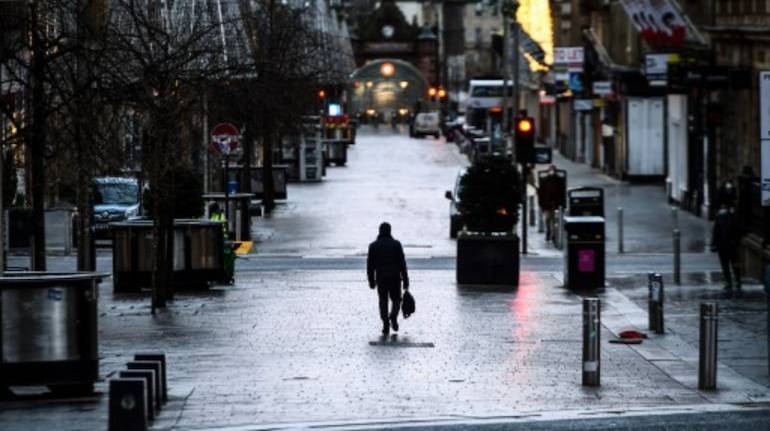



At least 10 arrests were made as British police officers faced a barrage of eggs and glass bottles from hundreds of protesters in yet another anti-lockdown protest dubbed Kill the Bill in the south-west England city of Bristol. After a stand-off between police and protesters on Friday evening, officers in riot gear and mounted on horses attempted to disperse the crowds after several warnings were made through a loudspeaker.
UK Prime Minister Boris Johnson and Home Secretary Priti Patel condemned the scenes of police officers being targeted. Last night saw disgraceful attacks against police officers in Bristol, said Johnson on Twitter.
Coronavirus update: Spike in fresh COVID-19 cases, India records 62,258 new infections
Our officers should not have to face having bricks, bottles and fireworks being thrown at them by a mob intent on violence and causing damage to property. The police and the city have my full support, he said. Patel also took to Twitter to offer her support to the local police and said she was disgusted with the violence directed at the officers.
I'm in no doubt the silent, law-abiding majority will be appalled by the actions of this criminal minority. Despite repeated warnings to disperse, it's clear these thugs were only intent on causing trouble, she said. The local Avon and Somerset Police said specialist resources including dogs and a police helicopter were used in the policing operation near Bridewell Police Station in the city centre, which has been the site of two previous Kill the Bill protests one of them turning violence last weekend.
The majority of people acted peacefully however there was a minority who once again showed hostility to officers, said Superintendent Mark Runacres in reference to Friday's protest. Items, including glass bottles and bricks, were thrown at officers, fireworks were launched at our mounted section while one of our horses was also covered with paint. This violent conduct is not acceptable. Officers repeatedly encouraged people to disperse but once the atmosphere changed and people became physical it was necessary to take action, he said.
Runacres said the 10 arrests were for offences including violent disorder, assaulting an emergency worker and possession of banned Class A drugs. Three of those arrested were also detained in connection with the violent disorder in the city last Sunday. Officers were instructed to use protective clothing after ammonia was smelt in the crowd. Social media images showed the police horses being scared by fireworks used during the demonstration, in opposition to the government's Police and Crime Bill which will see the police handed new powers to tackle protests.
Runacres added: All the officers policing the incident are specially trained and accredited in public order and showed exceptional patience in the face of a significant disorder. At times reasonable force had to be used this is not something we ever want to do but we have a duty to uphold the law, prevent crime, and protect people and property.
In the latest protest, more than 1,000 people gathered at College Green in Bristol from Friday evening. The police said its specialist protest liaison officers attempted to engage with those who had gathered to remind them of the current coronavirus restrictions and urge them to go home.
However, soon the crowd began marching through the city centre and a significant number of protestors congregated on Lewins Mead, in front of a police cordon. The local police said mutual aid from neighbouring forces was brought in to ensure the crowds were dispersed as safely as possible.
Discover the latest Business News, Sensex, and Nifty updates. Obtain Personal Finance insights, tax queries, and expert opinions on Moneycontrol or download the Moneycontrol App to stay updated!
Find the best of Al News in one place, specially curated for you every weekend.
Stay on top of the latest tech trends and biggest startup news.